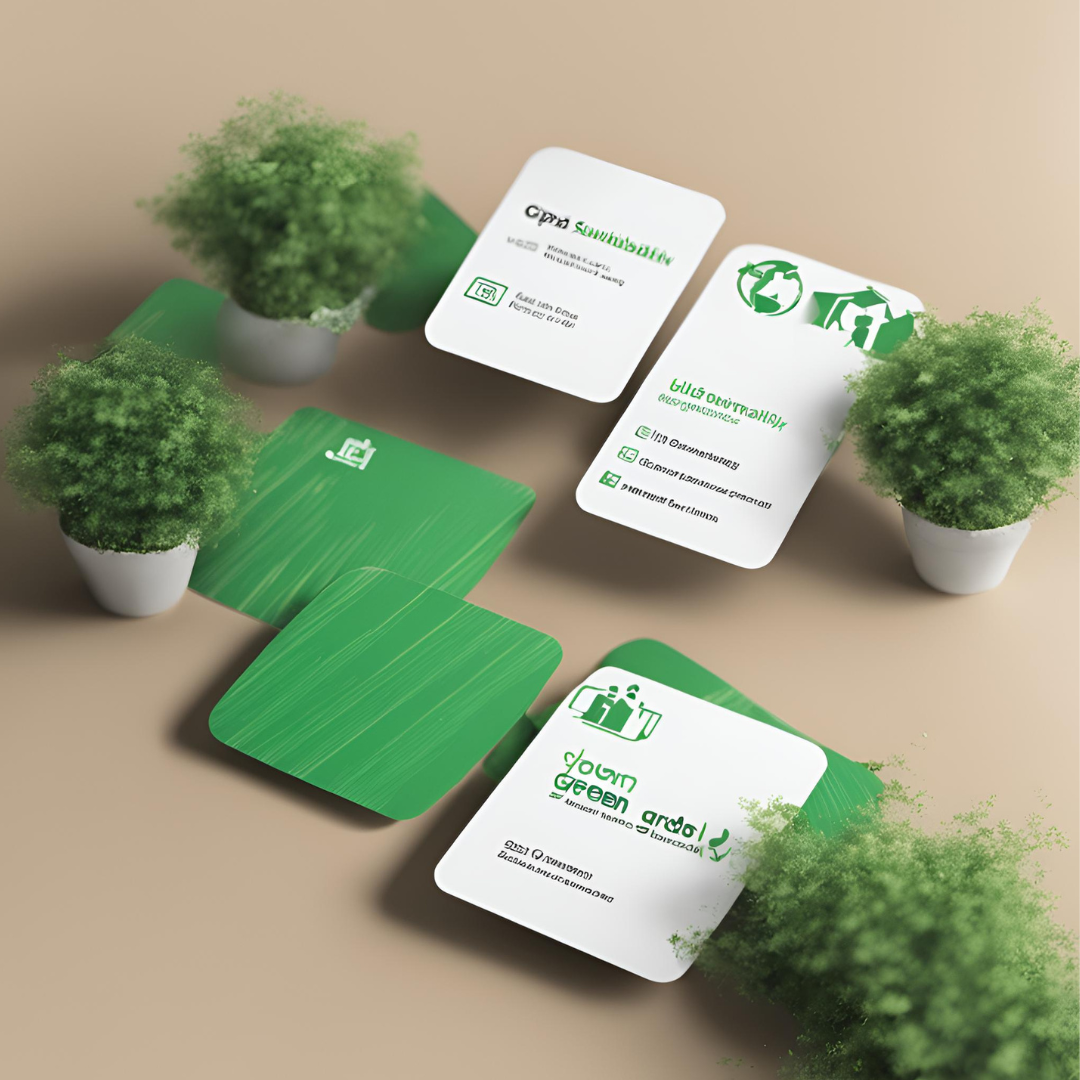
- May 14, 2024
- Tapcard
Going Green: How Digital Business Cards Foster Sustainability
Sustainability is taking centre stage in various industries in today’s rapidly evolving digital landscape. One area where this shift is particularly noticeable is in the way we exchange contact information. Traditional paper business cards, once ever-present in professional settings, are gradually being replaced by their digital counterparts. This transition isn’t just about convenience or modernity; it’s also about embracing sustainability.
The Environmental Toll of Traditional Business Cards
Traditional business cards may seem small and innocuous, but their environmental impact can be significant. Consider this: the average American professional uses about 100 business cards monthly. Multiply that by the number of professionals worldwide, and you have a staggering amount of paper consumption. Moreover, the production process for paper cards involves cutting down trees, consuming water, and emitting greenhouse gases. The ink used in printing also contributes to pollution, and the disposal of old or unwanted cards adds to the waste stream.
Trees Saved with Digital Alternatives
Switching to digital business cards offers a compelling solution to mitigate these environmental challenges. Unlike their paper counterparts, digital cards are stored and exchanged electronically, eliminating the need for paper production. By making the switch, individuals and businesses can significantly reduce their carbon footprint and contribute to forest conservation efforts.
Consider this: one tree can produce approximately 8,333 sheets of paper. The average paper business card requires around 10 square inches of paper, roughly 10 cards per sheet. Therefore, saving just one tree would be equivalent to saving around 83,330 business cards. Now, multiply that by the number of professionals worldwide, and the environmental benefits become undeniable.
Energy and Resource Conservation
The environmental benefits of digital business cards extend beyond saving trees. The production and distribution of paper cards consume not only trees but also water, energy, and other resources. In contrast, digital cards are created, shared, and stored using electronic devices, which, while not entirely free of environmental impact, are significantly more resource-efficient than their paper counterparts.
Studies have shown that producing a ton of paper consumes around 17 trees and 26,000 litres of water and emits approximately 1.5 metric tons of carbon dioxide equivalents. By reducing the demand for paper by adopting digital business cards, we can conserve these valuable resources and minimise the ecological footprint associated with traditional printing processes.
Waste Reduction and Recycling
Another advantage of digital business cards is the reduction of waste. Paper cards, often discarded or forgotten, contribute to the growing problem of solid waste pollution. Even when disposed of properly, paper cards ultimately end up in landfills, where they decompose and release methane, a potent greenhouse gas.
Digital cards, on the other hand, eliminate the need for physical disposal. They can be easily updated, shared, and archived without generating any waste. Additionally, the materials used in electronic devices can be recycled at the end of their lifecycle, further minimising their environmental impact.
Embracing Sustainable Practices
In an era marked by increasing environmental awareness and concern over climate change, businesses and individuals alike are seeking ways to reduce their ecological footprint. Embracing digital business cards is a simple yet impactful step towards sustainability. By making the switch, we save trees, conserve resources and demonstrate our commitment to responsible environmental stewardship.
Conclusion
The shift towards digital business cards represents more than just a technological advancement; it’s a step towards a more sustainable future. By reducing paper consumption, conserving resources, and minimising waste, digital cards offer a practical solution to the environmental challenges posed by traditional printing practices. As individuals and businesses, we have the power to make a difference by embracing sustainable alternatives in our everyday practices. So, let’s go green with digital business cards and pave the way for a healthier planet for generations to come.

